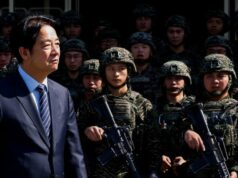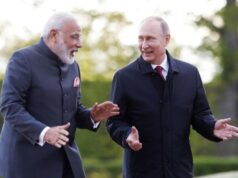NEW DELHI: It’s one of those coincidences India would prefer to have done without: the first meeting of G20 foreign ministers under India’s presidency takes place just days after the first anniversary of Russia’s invasion of Ukraine. Geopolitics will be the big elephant in the room and expect the G7 ministers to strain every vaunted muscle to crucify Russia.
The buzz doing the rounds is the West would be happy to see Russia out of the G20 (thereby making it G19). Recall, Russia was thrown out of the G8, comprising wealthy industrialised economies in March 2014, following its annexation of Crimea. That transgression apart, the West was also reflecting the fact that Russia, while a major oil and gas exporter, was never an economic power. Today, in the wake of its invasion of Ukraine, the West may want to drive the nail home and use the G20 fora to that end.
The UK, some reports say, is likely to be the lead beater of the Western drum, seeking to reinforce the ‘crucify Russia’ campaign. This is hardly good news for India but there’s more. Japan’s foreign minister is skipping the G20 foreign ministers meeting, apparently because of a “parliamentary budget session”. His deputy will represent him in Delhi.
India will be devoutly hoping others don’t follow suit, but the just concluded meeting of G20 finance ministers and central bank governors in Bengaluru has given sufficient indication of trouble ahead.
A “Summary and Outcome Document” rather than a communique, hinted that despite the G20 focus on macroeconomic and development issues, the politics generated by the Ukraine war had the edge with the U.S.-led Western bloc pulling in one direction, Russia and China in another.
MEA sources have dismissed this, stating that “Our endeavour was to reflect the Bali Consensus in the G20 Finance Ministers Meeting. This was expressed in the summary document. Therefore, any criticism is misplaced and factually inaccurate.”
But the fact remains that the Ukraine crisis has made India’s efforts to build a consensus on tackling inflation and tightening financial conditions in the post-pandemic environment difficult. It’s a point Prime Minister Modi acknowledged in his address to the G20 finance ministers and chiefs of central banks.
He said “It is up to you, the custodians of the leading economies and monetary systems of the world to bring back stability, confidence and growth to the global economy. It is not an easy task. Only by creating an inclusive agenda will the global economic leadership win back the confidence of the world.”
Modi’s views are well meant and senior Indian diplomats insist that “Ukraine is only one aspect and it’s important that leaders meet and consult”.
They note that the Bali G20 summit last year underscored the view in the G7 that they needed to support the G20’s efforts in helping to stabilize the world economy. Some believe that this is the first meeting of the G20 foreign ministers and there could be more going forward, leaving the door open for debate, deliberation and consensus building. Fingers crossed, as they say.
Thirty eight years in journalism, widely travelled, history buff with a preference for Old Monk Rum. Current interest/focus spans China, Technology and Trade. Recent reads: Steven Colls Directorate S and Alexander Frater's Chasing the Monsoon. Netflix/Prime video junkie. Loves animal videos on Facebook. Reluctant tweeter.




